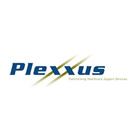
How to choose the right cloud storage service
Author: Swapna Naraharisetty, 2BrightSparks Pte. Ltd.
Cloud storage services provide a convenient way for users to store data in an offsite location and allows them to easily access it from anywhere with an internet connection. Thus, cloud storage has become a popular storage medium for data backups and recovery.
As numerous cloud services are available, selecting the right cloud service for your backup needs can be difficult and challenging. This article focusses on some key factors that you can use to identify the best cloud storage for your backup requirements and needs.
Data Storage Location
The physical location of a cloud server may affect your backup performance and recovery. So, it is one of the key priorities to consider when choosing the right cloud service for your backup needs.
If the cloud server is located far away from your primary location, then you may experience slow data transfer speeds to/from the cloud server. If the cloud server is too close to your primary site then any natural disasters like earthquakes,
floods or power outages can disrupt your business operations, leading to data loss, time and revenue. Therefore, the location decision should be based on the importance of data, type of possible disasters and cost.
In addition, some businesses may have compliance or regulatory requirements on data storage locations. Such organizations should carefully analyse their requirements and select a cloud service that allows them to transfer and store data in authorized locations approved by your company.
Security
Security is a top concern when choosing a cloud service. Consumers and businesses should assess the security features offered by each service provider to protect their data from security threats and attackers. It is the user’s responsibility to understand how data is transferred and stored on the cloud server, who can access it, what level of protection the service provider offers and other security challenges before choosing a cloud service.
Make sure you select a service provider that allows transferring and storing data in encrypted form, so that your sensitive data is protected from intruders or any other attacks.
Performance
Performance evaluation is an important factor when finding the right cloud service. There are several factors that impact the performance of a cloud service, including physical location, response time, processing time, latency, bandwidth, CPU, RAM, infrastructure, underlying storage, distance between end-user and the cloud server and processes to deal with planned/unplanned downtime.
Some cloud services offer different levels of performance at different price plans. Therefore, choose a cloud service that offers best performance for your backup needs.
Cloud storage services that are designed for home users, e.g. Dropbox, are often considerably slower than cloud services targeted at businesses, e.g. Amazon S3. Business orientated cloud services usually charge for data transfer, as well as data storage, and so do not throttle the transfer of data.
Integration With Other Applications
Before choosing a cloud service, you need to ensure that it can be easily integrated with other applications. Check if the cloud service provides an Application Program Interface (APIs) or program to integrate it with other software applications.
Also, make sure that the cloud server is compatible with the existing applications (or storage devices) in your environment, and data stored on it is easily accessible through different operating systems and web browsers that are used in your organization.
Cost
Cost is another key consideration when choosing a cloud service. Most of the cloud services offer a free tier (free storage) allowing you to see if they are right for you before upgrading to paid plans. So, you can test several cloud services and choose the best service provider.
While assessing the storage costs of various cloud services, you should compare the price per GB of storage space, upload & download costs, and any other hidden costs (e.g. customer support) associated with it. Choose a provider who allows
you to pay for the storage you use and enables you to add/remove services based on your requirements.
Conclusion
SyncBackPro provides a simple and easy way for users to back up their data to cloud services like Amazon S3™, Google Storage™, Google Drive™, Microsoft Azure™, Microsoft OneDrive™, OneDrive for Business (Office 365), SharePoint™ (Office 365), Dropbox™, Box, SugarSync™, OpenStack, Backblaze™ B2, OVH™, Egnyte™, Citrix ShareFile™, pCloud™ and WebDAV. SyncBackPro also supports end-to-end encryption (protects the data while in transit to the cloud) and cloud-based encryption (protects the data stored on the cloud server) options to safeguard your data from hackers.
With SyncBackPro, the data transfer is much faster and not throttled when backing-up to Amazon S3, Microsoft Azure, Google Storage, Backblaze B2 and OpenStack servers. However, those cloud services may be more expensive when compared to consumer-level cloud services like Dropbox, Google Drive, etc. Therefore, you may need to carefully consider the factors discussed in this article and thoroughly analyse your organizations requirements to determine the best cloud service suitable for your backup needs, and of course the most suitable backup software.
Noted Customers
© 2003-2025 2BrightSparks Pte. Ltd. | Home | Support | Privacy | Terms | Affiliate Program















